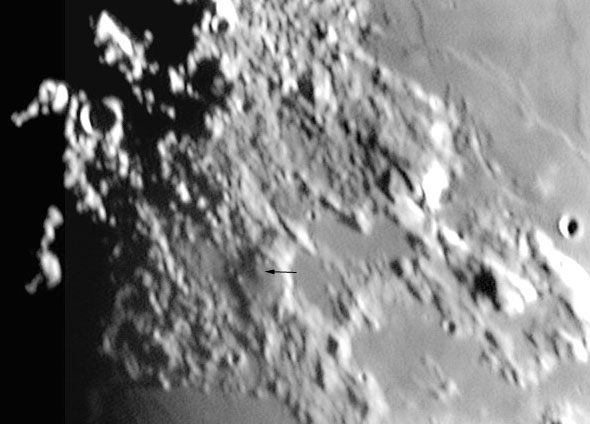Lunar 100 Completed!

Explanation:
We have a winner! In the April 2004 Sky & Telescope I presented a list of 100 interesting lunar features - the Lunar 100 - and wondered how long it would be before an enterprising observer would see them all. The answer is about 7 months. Here is what Arthur Coombs and John Robinson (Astronomical Society of Victoria Inc., Australia) write: First L100 avi's were captured towards the end of April 2004. Weather conditions have been frustrating with a very high frequency of cloud cover. This interrupted carefully planned photographic programs. Seeing conditions allowed frequent use of the X2 Barlow and X2.5 Powermate. Only on one night was the X5 Powermate used to capture the Plato Craterlets L83, Schroters Valley L17 and Gassendi L13 at high resolution. All but Mare Orientale were imaged by September 21st. On the morning of December 5th, albeit through some cloud, Mare Orientale was captured to complete our self-inflicted challenge. Today's LPOD shows probably the most difficult L100 object to image. Ina (L99) is a 3 km wide volcanic depression on the backslope of the Imbrium basin. This image shows the plateau where Ina is located - who will be the first with a large scale view of the depression itself?
—
Chuck Wood
Technical Details:
The collection of L100 images was made with a Phillips ToUcam Pro webcams attached to Arthur's 10 inch and John's 8 inch "homemade" Newtonian telescopes.Incorporation of a JMI DX1 focusser on the 8 inch telescope, allowing more accurate focussing at the computer screen,occurred partway through the photographic program. This image was taken Sept. 21, 2004.
Related Links:
Rukl Atlas of the Moon, Sheet 22
